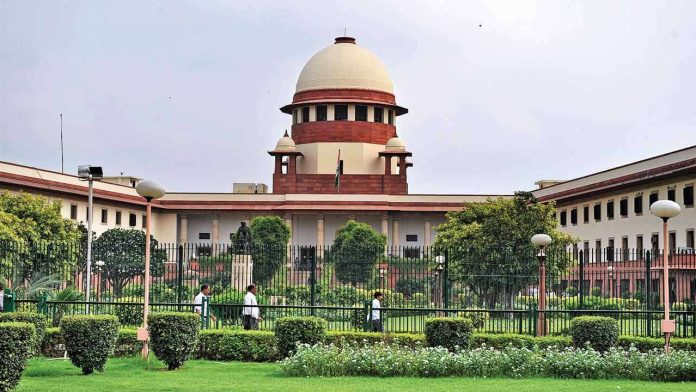New Delhi: In a landmark judgment, the Supreme Court today ruled that state governments do not possess the authority to act as judges and demolish the properties of individuals accused or convicted of crimes.
In establishing guidelines for state governments and their officials, the court emphasised that arbitrary actions by the executive in demolishing properties contravene the principles of ‘rule of law’ and ‘separation of powers,’ which are essential components of the Constitution. The court further stated that any breach of its guidelines by the state will result in contempt of court proceedings against the responsible officials, along with the imposition of costs.
The Supreme Court established, for the first time, guidelines to prevent arbitrary demolitions carried out by state authorities. The Court asserted that the voices of citizens must not be suppressed by the intimidation of property destruction, emphasising that such practices, referred to as “bulldozer justice,” are incompatible with a society that upholds the rule of law.
Justice Gavai said, “Having a home is a longing that never fades…it is a dream of every family to have a house… an important question whether the executive should be permitted to take away shelter as a major infliction of penalty…” The apex court said that the rule of law is the foundation of democratic govt and the issue regards fairness in the criminal justice system, which mandates that legal process should not prejudge the guilt of the accused.
The Supreme Court said we are issuing the order after hearing all the parties. While issuing the decision, many decisions of the SC have also been considered. “We have considered the rights guaranteed under the Constitution that provide protection to individuals from arbitrary state action. Rule of law provides a framework to make sure individuals know the property will not be taken away arbitrarily,” the court said.
“The executive can’t declare a person guilty. If based only on the allegation, it demolishes his house, it would strike at the basic principle of the Rule of Law. The executive can’t become a judge and decide to demolish an accused’s property.
“Excesses at the hands of the executive will have to be dealt with the heavy hand of the law. Our constitutional ethos do not permit any such abuse of power…cannot be tolerated by the Court of Law.
“In such cases, the executive would be guilty of taking the law in its hand and giving a go-by to principles of Rule of Law. Right to shelter, tracing it to Article 19, has been held to be a fundamental right,” the court said.
Key Directives from the Supreme Court:
Right to Challenge Orders: Individuals must be given an opportunity to challenge any demolition orders before enforcement.
Adequate Notice and Time: Authorities must issue a show-cause notice, giving a minimum of 15 days for a response, aligned with local municipal laws. Sufficient time should be provided for residents to vacate their homes.
Protection of Vulnerable Groups: The Court expressed concern about the impact on women and children, noting that it is inhumane to leave them without shelter overnight.
Transparent Procedures: A nodal officer must be appointed by the District Magistrate within a month to oversee demolitions. Personal hearings are mandatory, and detailed minutes must be recorded during these proceedings.
Digital Record-Keeping: Demolition orders, notices, and hearing details must be uploaded on a designated digital portal accessible to the public.
Videography of Demolitions: All demolition activities should be recorded to ensure transparency and accountability.
Exclusions: The guidelines do not apply to unauthorised constructions on public land or cases where a court order mandates demolition.
Consequences for Non-Compliance: Violations of these guidelines may lead to contempt of court proceedings against responsible officials. Officers found in violation may be held personally accountable, including bearing the costs of restitution for demolished properties.




